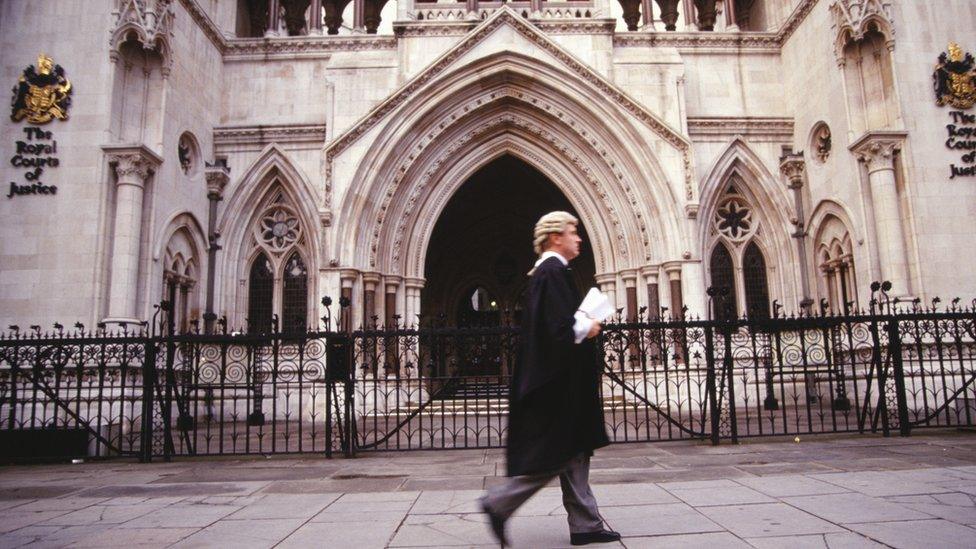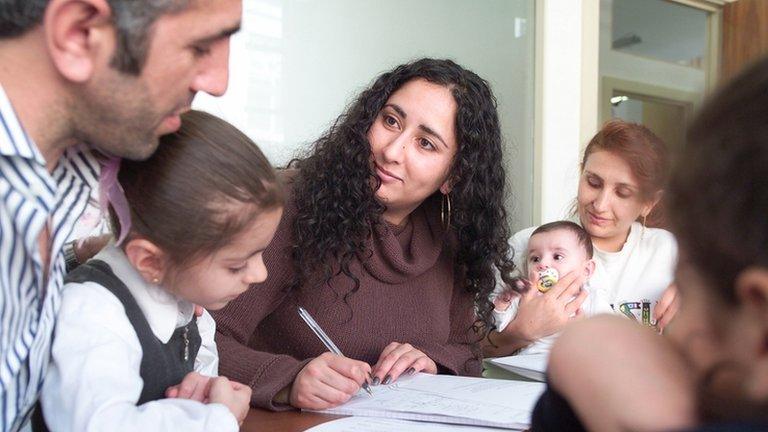Legal aid: Barristers to strike over 'relentless cuts'
- Published

Barristers are to go on strike over "relentless" cuts which have left the criminal justice system "broken".
The Criminal Bar Association (CBA), which represents criminal lawyers in England and Wales, is advising its members take part in "days of action".
It also recommends its members refuse all legal aid cases from 1 April when a new fees system comes into force.
The Ministry of Justice said it was "extremely disappointed" by the position taken by the CBA.
Angela Rafferty QC, chair of the CBA, has warned that prisons, courts, the police and probation services were "underfunded and in chaos".
She said a lack of investment meant cases were not being properly investigated by the police and CPS, there was uncertainty and delay at court and "unnecessary distress" for witnesses, victims and defendants.
She said the recent disclosure crisis, which led to the collapse of a number of rape trials last year, also highlighted "the appalling state of our system".
She said the Ministry of Justice's "already meagre and inadequate" budget would be reduced by £600m by 2019/20.
She said underfunding meant the poor and vulnerable were "being denied access to justice", members of the public were "at risk of miscarriages of justice" and the faith of the public in the jury system was being undermined by "the chaos in courts".
"In 2016, the Public Accounts Committee warned that the criminal justice system was close to breaking point. It is now broken," she added.
'Final straw'
The planned strike is timed to coincide with the introduction of the Advocates' Graduated Fee Scheme (AGFS), which comes in on 1 April and will link the amount barristers are paid for legal aid work to the complexity of a case.
The Ministry of Justice said the scheme was cost neutral.
However, the CBA said the government's refusal to invest in the scheme was "the final straw".
It said barristers' fees had been cut by 40% over 20 years and the lack of investment undermined the progress made on diversity and social mobility in the profession.
In a ballot of 2,300 of its members - a 55% turnout - 90% voted in favour of action.
Prominent legal chambers Doughty Street, Garden Court and 25 Bedford Row are among those set to be involved.
BBC legal correspondent Clive Coleman said refusing legal aid briefs would take months to have an effect and it was not clear how solid the strike action would be.
However, he said it had potential to cause "serious disruption".
A Ministry of Justice spokeswoman said it would continue to engage with the Bar.
She said: "Our reforms will reflect the actual work done in court, representing better value for the taxpayer, and will replace an archaic scheme under which barristers were able to bill by pages of evidence.
- Published24 January 2018

- Published20 March 2013
